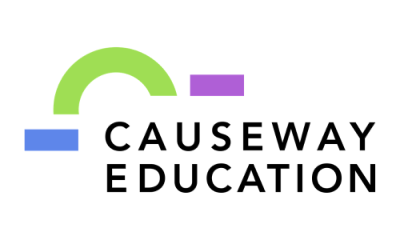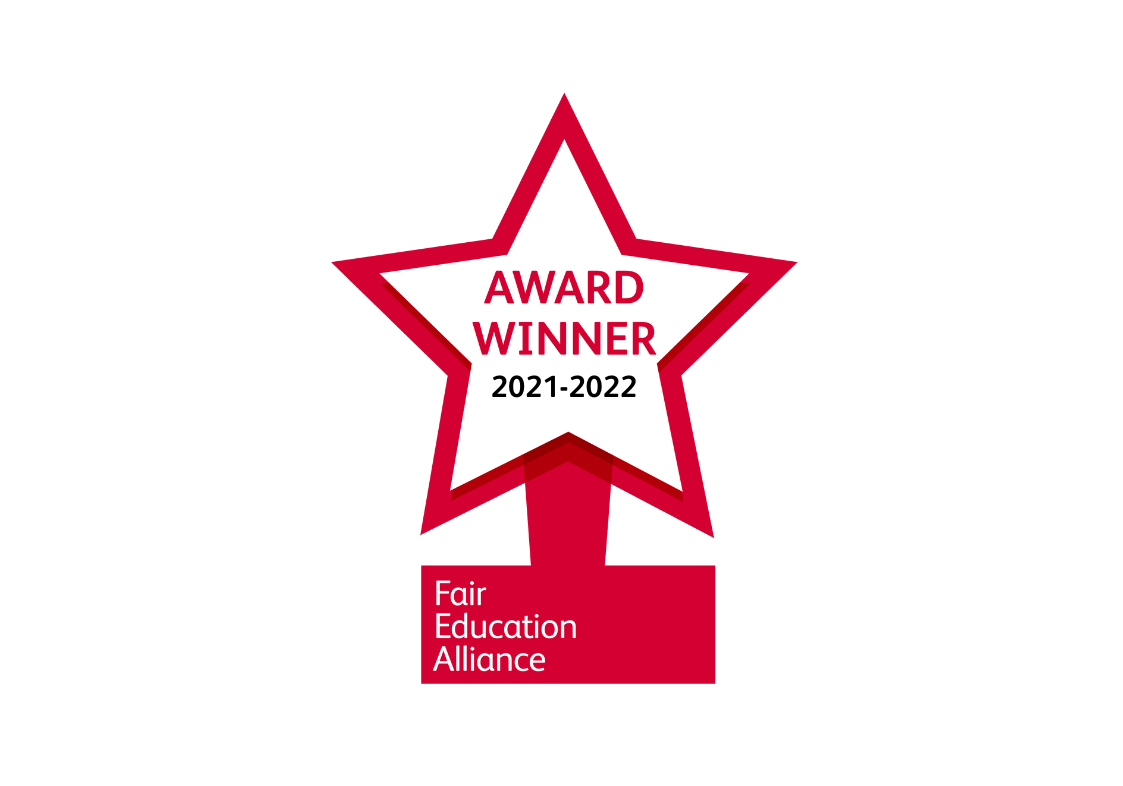5 lessons I've learnt at Causeway and what they mean for WP
/Causeway’s much-loved Head of Partnerships Helen Drummond is leaving to take on a role spearheading the effort to raise university progression in her local area of Tottenham. Here she reflects on what she’s learned by working at Causeway and how these lessons are applicable to the wider WP sector.
After six brilliant and informative years, I am leaving Causeway. Lockdown, Christmas, another lockdown and home-schooling have allowed me to bury my head in the sand, but now my departure date is here I need to start preparing to leave this brilliant, warm and supportive organisation.
On the flipside is my elation at not just getting a new job, but one that excites me so much, one where I can take all my learning from Causeway and put it into practice in my local community. My new role, based at the London Academy of Excellence Tottenham, sees me working with local primary and secondary schools to raise university progression across Tottenham. This is a dream opportunity as I am serving the community that I live in, where I have been a governor for 14 years and where my own children are at school.
To mark my leaving, and the future arrival of a new member of the team, I wanted to reflect on the main things I have learned while working here, all of which I will take with me to my new role. In fact, it is by leaving that I have realised how valuable Causeway’s work is. For a start it is the only organisation I have worked in that looks constantly looks to academic research to inform the best practice and resources. So, if you work with young people planning their next steps after school or college, then these learnings might also be helpful to you.
Put pedagogy in your IAG
This is at the heart of Causeway’s approach. Teaching is a skill, an art and a craft. It relies on building confidence, knowledge and skills, all introduced in the right order, or it won’t make sense. Teachers masterfully adapt how and what they teach to suit everyone. Students who need to be stretched, or who arrived in the country last week, or who missed last week’s lesson, will all need a little bit of extra consideration. At the other end of the spectrum, Information, Advice and Guidance (IAG) for careers and HE rarely works in the same, sophisticated way; it doesn’t matter what language you speak, what your attainment level – “This is how university finance works”, “Here is a career talk” and “Here is a website with all the information”. No school lesson would be taught in the same way that IAG is delivered. We have to let students grapple with topics, allow time to come back to the same topic, and adjust our approach for different groups of students based on the barriers they face.
Social inequality is a bigger obstacle than a lack of aspirations
Widening Participation exists to ease inequalities in access to university. However, those inequalities are rooted in wider societal disparities and as one wise WP lead told me “WP is simply a sticking plaster” over an unequal society. To be as effective as possible in that role of Band-Aid, Causeway has been exploring what those barriers look like and working out the best way for schools to build the right paths to overcome them. In areas of considerable disadvantage, low aspirations are mostly a product of those barriers, and rarely a barrier in and of themselves. Yet it’s all too common to hear “aspiration” cited as the principal cause of poor progression outcomes. John Owens and Tania de St Croix explain this nicely in this excellent article.
You write better personal statements with OSCAR
OSCAR blew my mind when I first discovered it. Here’s the situation: a researcher called Vikki Bolliver found out that state school students are a third less likely to get a top tier university place even though they have the same grades as their privately educated peers. Here you can read about the research we did with The Sutton Trust as to what then needs to be included in a personal statement to have any chance of reversing this trend. Our solution, OSCAR, is an online platform where all this research is broken down into manageable chunks, so students can write more effective personal statements. If you don’t know who we are then you need to find out quick or you are missing out. Every year I read amazing personal statements that are the product of a first attempt on OSCAR. Nothing beats it. Did I mention it’s free to all state schools?
Qualitative research is not the poor relation
I arrived at Causeway thinking that it was better to have ‘hard’ numbers to measure programmes. This was just how it was in all my previous experience. It feels like in charity work, and in particular in educational programmes, everyone is working towards more quantitative impact measurement to measure success and I had never thought to challenge that. I have learned so much since then (and I still barely know anything) about the importance of qualitative data to tell the human story that occurs in between all the numbers. Quantitative impact is fashionable, not better. Theories of Change are also fashionable. All these approaches hold value, it’s just important to also recognise that we currently live in a system that values this type of impact, as opposed to this type of impact leading to better outcomes for students. Too heavy an emphasis on numerical data risks reducing programmes to those which can be easily measured in numerical terms, even if they aren’t necessarily the most effective.
Don’t focus on the outliers
Whenever I tell somebody that I work supporting young people to university, the chances are they will tell me about someone who beat the odds to get into a decent HEI. We have to stop focusing on the one or two stories we can remember about individuals and look at the structural inequality that still means that, in lots of the more ‘prestigious’ universities, a third of the intake will be from private schools. And the other two thirds will include many state grammar schools, which are still out of reach to the less well off. The poster boy or girl of social mobility is a distraction to the real injustices in our schooling system, and wider wealth inequalities. State schools need to be better skilled at supporting their student to navigate the paths to HE, but to do this well, they will need more resources. Causeway is doing all it can to support schools and the WP sector with the resources they have, but we will always advocate for longer term solutions designed to bring about real change.
It’s been such a pleasure to work at an organisation that seeks to disrupt what we think we know about fair university access and I will rely on them for success in my new role, and I have no shame in saying that!





